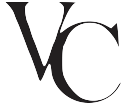We all know varicose veins are unsightly, but did you know they can also be hereditary? If you have varicose veins, you must know whether or not they are hereditary to determine how to treat them best.
What are varicose veins?
Veins are the blood vessels that carry oxygen-depleted blood back to your heart. This movement happens through valves that open and close to push the blood upwards to your heart. When these valves stop working as well as they should, blood is allowed backward and can pool. This pooling stretches the vein walls, causing the bulging appearance of varicose veins.
The veins in your legs work against gravity to pump blood back to your heart. So, the veins in your legs have to work harder to accomplish their task, especially if you’re tall. Consequently, varicose veins are most common in the legs.
Symptoms and Impact:
Varicose veins can cause a range of symptoms, including:
- Pain or aching in the legs, especially after prolonged standing or sitting.
- Swelling in the legs and ankles.
- Itching or a burning sensation around the affected veins.
- Restless legs or a feeling of heaviness.
- Cramping or throbbing in the legs.
If left untreated, varicose veins can lead to complications such as skin changes, ulcers, and bleeding. These complications can impact an individual’s quality of life, causing discomfort, mobility issues, and aesthetic concerns.
ARE VARICOSE VEINS HEREDITARY?
Are varicose veins genetic? Yes and no. Genetics plays a significant role in the development and risk of varicose veins. For example, some hereditary factors can increase the chance for individuals to develop weakened vein walls and faulty valves.
If a close family member, such as a parent or grandparent, has a history of varicose veins, you might be at a higher risk of developing them. However, while genetics can increase your risk, they don’t guarantee the development of varicose veins, as lifestyle and environmental factors also contribute. In fact, if you help to prevent other risk factors, you can improve your chances of developing varicose veins.
Other risk factors include:
Pregnancy
During pregnancy, your changing body places on the inferior vena cava, a large vein in the middle of the body. Because of the pressure, varicose veins can appear as a pregnancy side effect. However, they usually go away once you’ve given birth.
Being Overweight/Obese
Being overweight or obese places strain on leg and ankle veins. It can also cause the veins to be less efficient at getting blood back up to the heart. Thankfully, losing weight may help reduce or diminish your risk if you already have varicose veins.
Standing or Sitting for Long Periods
People who stand on their feet or sit for long periods at work are at increased risk of developing varicose veins. If you have a job that requires standing, make sure that you sit down and elevate your feet on breaks. If your job requires sitting for extended periods, be sure to get regular exercise and stand up to stretch every few hours.
Age
About 50% of adults over the age of 50 have varicose veins. Our veins age as we do; with age, the valves become less efficient at doing their jobs, and the risk of developing varicose veins increases.
While having a close relative that developed varicose veins is a risk factor, you’re not necessarily doomed to inherit grandma’s varicose veins. Take care to reduce your other risk factors; you might only inherit her pie-baking skills instead.
Treatment Options
Depending on the severity and symptoms, several treatment options are available for varicose veins. Consult a vein specialist at The Vein Centre to know which treatment options are best for you. Treatment may include:
- Lifestyle Changes: Regular exercise, maintaining a healthy weight, elevating legs, and avoiding prolonged periods of standing or sitting can help improve blood circulation and reduce symptoms.
- Compression Stockings: These tight-fitting stockings provide external pressure on the veins, aiding blood flow and reducing swelling.
- Minimally Invasive Procedures: Procedures like endovenous laser treatment (EVLT) and radiofrequency ablation use heat to close off problematic veins, redirecting blood flow to healthier veins.
- Sclerotherapy: This involves injecting a solution into the affected veins, causing them to collapse and fade over time.
- Surgical Options: For severe cases, your doctor may recommend surgical procedures like vein stripping or ligation to remove or tie off affected veins.
Early Intervention
Early intervention is crucial for managing varicose veins effectively. If you have a family history of varicose veins or notice any symptoms, consider the following steps:
- Consult a Healthcare Professional: Schedule an appointment with a doctor or a vein specialist to receive a proper diagnosis and personalized treatment recommendations.
- Monitor Symptoms: Keep track of any discomfort, swelling, or changes in the appearance of your veins. Early detection can lead to more successful treatment outcomes.
- Lifestyle Modifications: Adopt a healthy lifestyle by maintaining a balanced diet, staying physically active, and avoiding prolonged periods of inactivity.
- Discuss Treatment Options: If varicose veins are detected, discuss the available treatment options with your healthcare provider. Early intervention can prevent the condition from worsening and alleviate symptoms.
Remember, while genetic factors contribute to your risk, lifestyle choices also play a significant role in managing varicose veins and reducing their impact on your well-being.
Varicose Vein Relief at Vein Centre
Experience the freedom of healthier legs with The Vein Centre’s exceptional vein treatments. Say goodbye to varicose veins and discomfort, and hello to renewed confidence and vitality. Our expert team is dedicated to providing cutting-edge treatments tailored to your needs. Don’t wait to embrace a life without the limitations of vein issues. Schedule your consultation today and step into a future of well-being.



